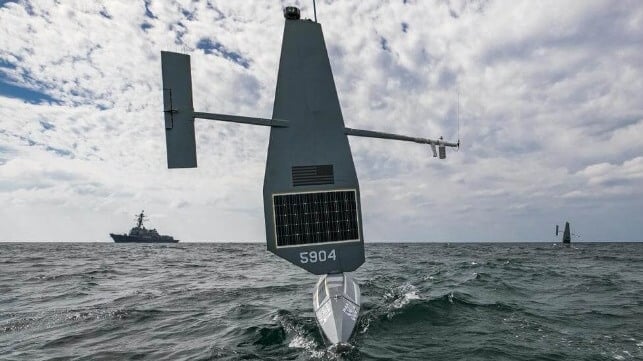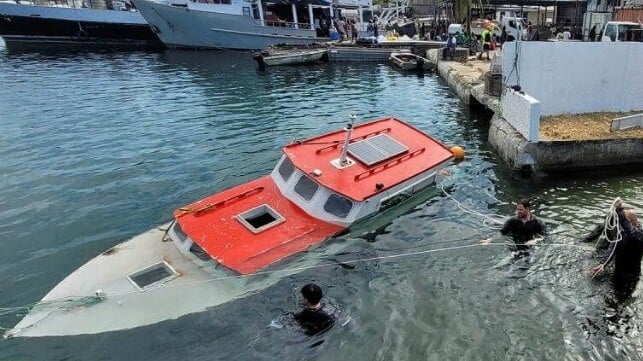The U.S. Navy has completed investigations into the string of suicides aboard the carrier USS George Washington, and has concluded that much more needs to be done to support enlisteds during extended yard periods. The majority of carrier crewmember suicides occur while in the yard, where food, sleep, basic services and internet access are harder to come by. As a corrective, U.S. Fleet Forces Command has proposed dozens of changes that would improve sailors’ pay and overall quality of life, as well as give them a chance to switch to a seagoing command before their time in the Navy is up. It has also recommended taking a hard look at why carriers like George Washington are taking so long to get out of the yard.
George Washington has been in the shipyard since August 2017, going on six years. This is long enough that three annual cohorts of her crew could join the Navy and leave the Navy without ever going to sea.
For those on board, the report depicts challenging conditions. The vessel was undermanned, with less than 80 percent fit and fill by April 2021. The shortage in supervisory personnel was especially serious. In the engineering department, there were five chiefs for 185 sailors. For those living off the ship, distant parking (up to 15 miles from the yard) required a commute of two hours or more each way. The availability of decent food, fitness facilities and nearby housing were all limited.
“Throughout that investigation and assessment of quality of service, it was pointedly obvious that the Navy had failed the George Washington through a host of things that we put that ship into,” Admiral Daryl Caudle, Commander of U.S. Fleet Forces Command, told reporters in a press conference on Thursday.
In an endorsement accompanying the report, Naval Air Forces Commander Vice Admiral Kenneth Whitesell recommended that:
– first-term sailors be assigned to no more than two years of service aboard carriers in shipyard.
– more food distribution points be established in yard and Basic Allowance for Subsistence payments for all aboard;
– the Navy should end ship or barge housing during a yard period, except for the duty section, and ensure offsite housing for all possible;
– the service should improve availability of counselors;
– and the Navy should find and negotiate closer-in parking for crewmembers to reduce two-hour commutes.
Whitesell also noted that underfunding for George Washington’s overhaul and a shifting of priorities to the troubled newbuild USS Gerald R. Ford led to less resources for the George Washington’s crew. Given how long it has taken to get George Washington out of the shipyard, he warned that “existing [yard period] contract structure does not properly incentivize [HHI] to complete within the expected timeframes.” Whitesell called for a programmatic review of whether privately owned shipyards with nuclear-vessel capability (implicitly HHI and Electric Boat, the only qualified entities) can perform the volume of repair and construction contracts they hold.
The findings accompany a new memo from Secretary of the Navy Carlos Del Toro and CNO Adm. Mike Gilday, which enumerates basic new rights for enlisted sailors. These include:
– a deliberate strategy for strengthening their mental and physical health;
– the opportunity to go to sea;
– the opportunity to live off the ship while in an industrial environment;
– access to convenient, affordable, and nutritious food, particularly while in shipyard;
– convenient access to free, high speed WiFi in unaccompanied housing and Morale Welfare and Recreation centers;
– and, if unable to perform their duties, access to full and direct support.
Today’s jobseekers have an abundance of choices, and the Navy is struggling to meet recruiting numbers; it is actively advertising the rewarding nature of service, and sailors’ depictions of shipboard life in the yard may not consistently align with the advertised description. In addition to improving conditions for current enlisteds, new guidelines for sailors’ rights may also help bridge the recriting gap.

















